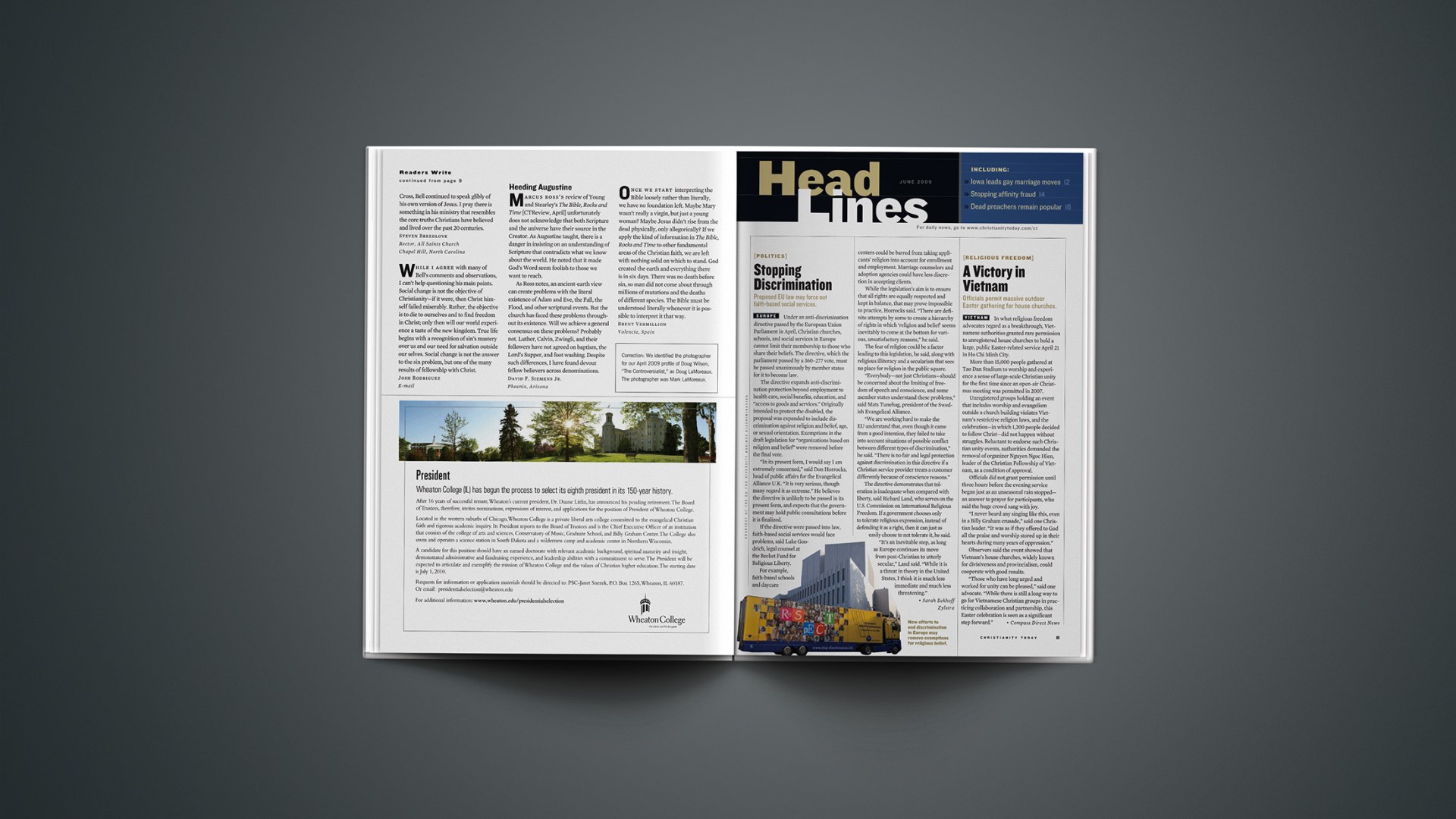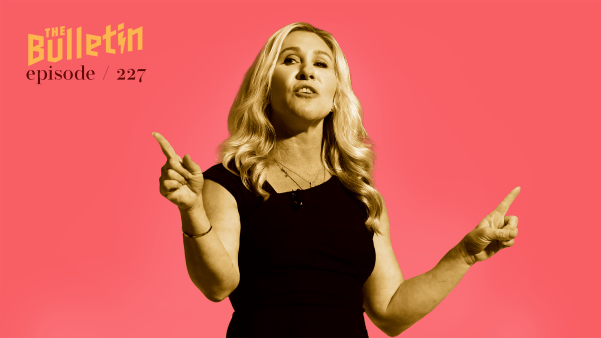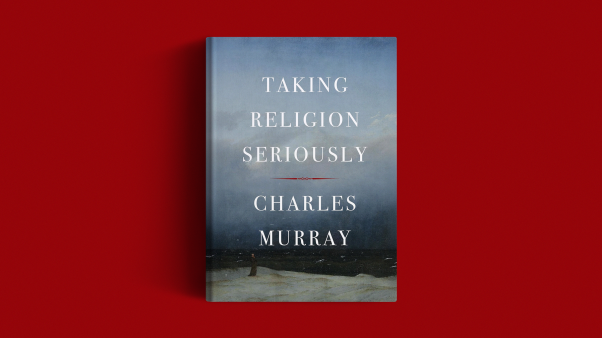Under an anti-discrimination directive passed by the European Union Parliament in April, Christian churches, schools, and social services in Europe cannot limit their membership to those who share their beliefs. The directive, which the parliament passed by a 360-277 vote, must be passed unanimously by member states for it to become law.
The directive expands anti-discrimination protection beyond employment to health care, social benefits, education, and “access to goods and services.” Originally intended to protect the disabled, the proposal was expanded to include discrimination against religion and belief, age, or sexual orientation. Exemptions in the draft legislation for “organizations based on religion and belief” were removed before the final vote.
“In its present form, I would say I am extremely concerned,” said Don Horrocks, head of public affairs for the European Evangelical Alliance “It is very serious, though many regard it as extreme.” He believes the directive is unlikely to be passed in its present form, and expects that the government may hold public consultations before it is finalized.
If the directive were passed into law, faith-based social services would face problems, said Luke Goodrich, legal counsel at the The Becket Fund for Religious Liberty.
For example, faith-based schools and daycare centers could be barred from taking applicants’ religion into account for enrollment and employment. Marriage counselors and adoption agencies could have less discretion in accepting clients.
While the legislation’s aim is to ensure that all rights are equally respected and kept in balance, that may prove impossible to practice, Horrocks said. “There are definite attempts by some to create a hierarchy of rights in which ‘religion and belief’ seems inevitably to come at the bottom for various, unsatisfactory reasons,” he said.
The fear of religion could be a factor leading to this legislation, he said, along with religious illiteracy and a secularism that sees no place for religion in the public square.
“Everybody—not just Christians—should be concerned about the limiting of freedom of speech and conscience, and some member states understand these problems,” said Mats Tunehag, president of the Swedish Evangelical Alliance.
“We are working hard to make the EU understand that, even though it came from a good intention, they failed to take into account situations of possible conflict between different types of discrimination,” he said. “There is no fair and legal protection against discrimination in this directive if a Christian service provider treats a customer differently because of conscience reasons.”
The directive demonstrates that toleration is inadequate when compared with liberty, said Richard Land, who serves on the U.S. Commission on International Religious Freedom. If a government chooses only to tolerate religious expression, instead of defending it as a right, then it can just as easily choose to not tolerate it, he said.
“It’s an inevitable step, as long as Europe continues its move from post-Christian to utterly secular,” Land said. “While it is a threat in theory in the United States, I think it is much less immediate and much less threatening.”
Copyright © 2009 Christianity Today. Click for reprint information.
Related Elsewhere:
The European Union provides more information about the proposed law in a press release.
More information about the European Evangelical Alliance, The Becket Fund, and the U.S. Commission on International Religious Freedom can be found on their respective websites.
More Christianity Today articles on Europe include:
Promoting and Uniting European Evangelicals | Swimming against the current makes the European Evangelical Alliance’s liaison to the E.U. feel alive. (June 24, 2005)
European Disunion | Churches push for acknowledgment of Europe’s spiritual heritage (August 5, 2002)
European Union Charter Omits Church History | Churches across Europe decry the EU’s failure to recognize Europe’s religious heritage (November 1, 2000)










